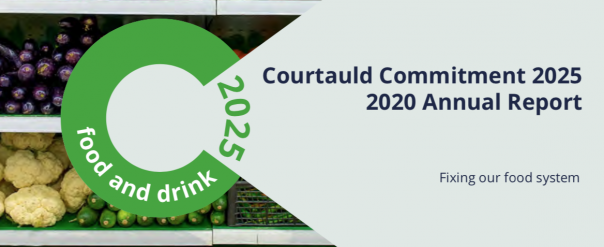
The report presents an overview of the progress made towards industry targets of becoming more sustainable. Organisations are committed to work through Courtauld 2025 to reduce the environmental impact of food from ‘farm to fork’.
The Food Waste Reduction Roadmap, which sets out the delivery plan for the Courtauld 2025 goals, saved 180kt of food from becoming waste (worth £300m). The WRAP ‘Love Food Hate Waste’ campaign was launched to help people make the connection between wasted food and climate change.
The Guardians of the Grub campaign for the hospitality and foodservice sector went online with a new learning platform for tackling sector food waste. A new supply chain greenhouse gas working group launched to help decrease carbon emissions across the sector.
Marcus Gover, chief executive of WRAP, said: “Even in these challenging times, it has been heartening to be able to showcase the many achievements on tackling food waste, climate change, and water stress.
“Courtauld 2025 has played a major role in helping the UK to be the first country in the world to reach halfway towards meeting Sustainable Development Goal Target 12.3 to halve food waste by 2030.
“The UK as a shining light in an otherwise gloomy global picture. It’s why Courtauld 2025 is a model, which is being replicated around the world.”
An estimated 750m litres of water has been replenished back into nature by more than 80 food & drink businesses and 2,000 farmers.
Courtauld Commitment 2025 targets include:
- Food waste: A 20% per person reduction in food and drink waste.
- Greenhouse gases: A 20% per person reduction.
- Water: A reduction in impact associated with water use and waster stress in the supply chain.
Access the 43 page annual review below: